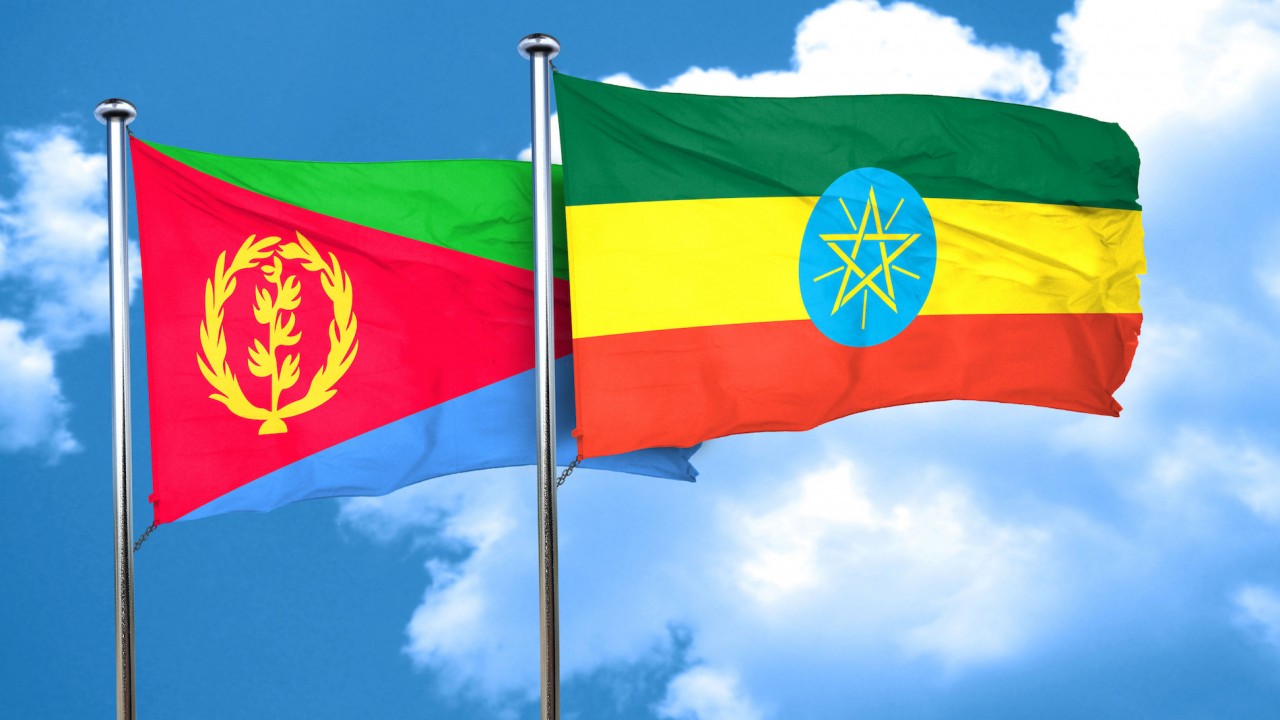Peace in the ‘Horn of Africa’
June 6, 2018 | Expert Insights

Ethiopia finally agreed to the UN-backed Eritrea-Ethiopia Boundary Commission’s conditions to end the 20-year long border dispute between the two countries.
The border peace comes after Prime Minister Abiy Ahmed lifted the state of emergency on Tuesday.
Background
Influenced by the Sabaeans of Yemen, the kingdom of D’mt disintegrated before the rise of the powerful Axum dynasty in the 1st Century AD. Axum King Ezana converted to Christianity following which commerce and society was influenced by Christian ideals. According to Ethiopian tradition and the Old Testament, Sheba (called Makeda) bore Solomon a son, Menilek I, who founded the royal dynasty of Ethiopia. A long line of Solomonic Kings then took to the throne.
After the defeat of Italian invaders in 19th century, Ethiopia was recognised as only one of two independent countries in Africa. Under Mussolini, Italians ravaged the country until the end of WWII. Haile Selassie was then appointed as the ruling monarch who planned to slowly convert it into a democracy. However, he was overthrown in a military coup. The Federal Republic of Ethiopia was established by Meles Zenawi in 1991. Soon after, Eritrea fought and gained their own independence.
Located on the Horn of Africa, the two countries have a shared history. Ethiopia became landlocked in 1993 after Eritrea, which comprised the country's entire Red Sea coast, voted to leave. Situated to the south of Egypt, both countries are heavily reliant on agriculture.
Viewed as the deadliest border wars in Africa, Ethiopia and Eritrea diverted large amounts of funds for public works towards acquisition of weapons. The disputed area of Badme is a desolate plain bearing little utility; many scholars remain dumbstruck as to why the two would engage in massive bloodshed for the land. A UN-backed Boundary Commission in 2000 awarded the land to Eritrea. Ethiopia signed, but did not abide by the ruling, leading to Eritrea withholding from further talks.
Analysis
The acceptance of all conditions by Ethiopia is one of many steps taken by the newly appointed Prime Minister Abiy Ahmed.
The border dispute which displaced thousands also hampered cross-border trade between local communities. As a landlocked country, Ethiopia requires Eritrea’s assistance for access to the Red Sea. Moreover, in order to maintain defenses against Ethiopia’s larger army, Eritrea introduced Compulsory National Service. For those who fled from service, their futures remained bleak in over-crowded refugee camps or at risk on the Mediterranean Sea.
“The Eritrean government should take the same stand without any prerequisite and accept our call to bring back the long-lost peace of the two brother nations as it was before,” the governing party, the Ethiopian People’s Revolutionary Democratic Front, said in the statement.
No statements have been released from any Eritrean official. Bronwyn Bruton, deputy director of the Africa Center at the Atlantic Council, a Washington-based research group says, “Ethiopia is really signaling its seriousness” to finally resolve the dispute. She also maintains that Eritrea has been in the right.
Mass protests have taken place since 2015 for greater freedoms and an overall improvement in standard of living. The protests which broke out amongst the Oromo, the largest ethnic group in Ethiopia, then spread to the Ahmara.
After the former PM Hailemariam’s resignation, the government implemented a six-month state of emergency to quell anti-government demonstrations. Human rights groups said hundreds of people were killed by security forces during the violence, while thousands of others were arrested.
Recently, gradual privatization of existing firms was hailed by Ethiopians who have been fighting for land rights. Citizens may lease land up to 99 years but are not allowed to mortgage or sell land in the effort to maintain communal farming. Demands for greater economic freedom has been central to the demonstrations.
Assessment
Our assessment is that Ethiopia’s actions have been a proactive step forward to re-establish ties with the Eritrean highlands. Historical and cultural relations have been central for many families and trading communities living within or around the conflict zone. They will gain the most from this step, a first in securing the cultural and economic significance of the Horn of Africa.








Comments